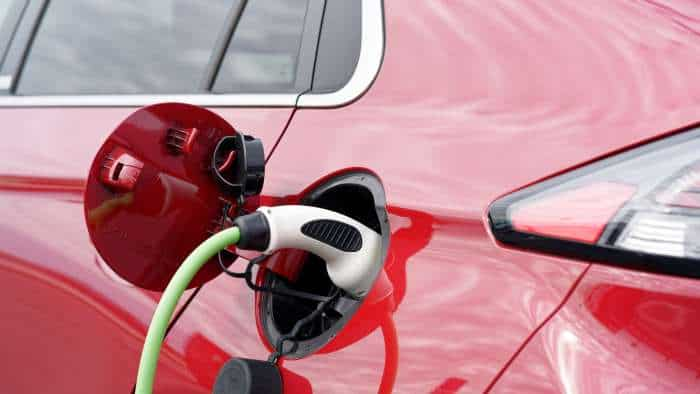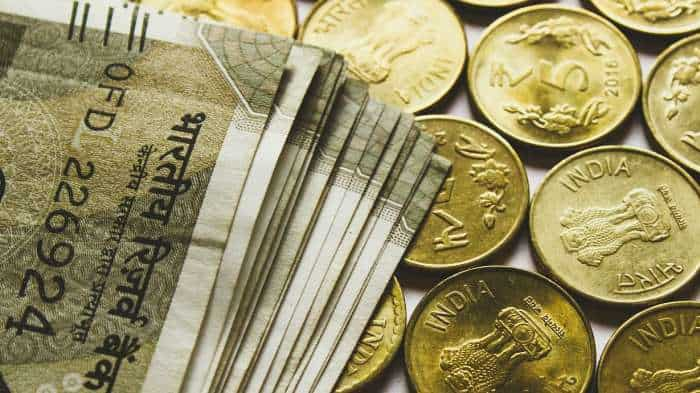It is time for India to shine in EVs without getting distracted by hybrids: Dr Pawan Goenka
In the words of Dr Pawan Goenka, Chairman of the Indian National Space Promotion and Authorisation Centre (IN-SPACe) and an eminent automobile industry veteran, it is time for the country to shine when it comes to electric vehicles (EVs).
)
Where is India on its journey with electric mobility, the future of automobiles? In the words of Dr Pawan Goenka, it is time for the country to shine in the realm of electric vehicles (EVs). Chairman of the Indian National Space Promotion and Authorisation Centre (IN-SPACe), a single-window agency for all space sector activities of private entities, Dr Goenka is an eminent automobile industry veteran with a career spanning more than a decade.
EVs not only make mobility possible at zero emissions but also help reduce the economy's oil import bill, highlights Dr Goenka. India meets more than four-fifths of its oil requirement through imports.
Emphasising India's pivotal opportunity to make a global mark in electric mobility, Dr Goenka believes that the utility of electric vehicles cannot be compared with that of hybrid vehicles, given that hybrids may reduce emissions by 10 per cent but are fundamentally incapable of bringing them down to zero.
He argues that the country’s automobile sector should focus wholly on EVs rather than diluting efforts towards areas like hybrids, with special emphasis on enhancing charging infrastructure.
Regardless of whether it is the central government or private sector players leading this effort, the motto should be to ensure a dependable charging infrastructure for EVs in the coming years, according to Dr Goenka.
Another important area that needs priority attention for India to seize the opportunity in the EV sector is the higher price tag of these vehicles. Today, EVs in the country come with much higher price tags than hybrids or ICE-powered vehicles, even after considering the concessional 5 per cent GST applicable to EVs, which is only a fraction of the rates applicable to hybrids, he points out.
Stressing the need for increased local production and scale to further reduce costs and boost exports, Dr Goenka highlights several key points about the future of electric mobility in India:
Lithium prices have significantly dropped and are expected to remain lower. Since lithium is fully recyclable, its supply should be sustainable once recycling systems are in place, says Dr Goenka, adding that geopolitical issues are not anticipated to affect the availability of lithium in the future.
He also believes that India needs to become self-reliant in producing motors and magnets, as the country has substantial deposits of rare earth metals necessary for these components. Currently, India exports these metals and imports finished magnets, making them an expensive part of EVs.
Dr Goenka believes that the domestic auto industry has come a long way in many dimensions, such as volumes, technology, quality, and features.
Get Latest Business News, Stock Market Updates and Videos; Check your tax outgo through Income Tax Calculator and save money through our Personal Finance coverage. Check Business Breaking News Live on Zee Business Twitter and Facebook. Subscribe on YouTube.
05:03 PM IST











 Kinetic Green ties up with Yuma Energy to deploy 1 lakh EVs in 4 years
Kinetic Green ties up with Yuma Energy to deploy 1 lakh EVs in 4 years India now has 28.55 lakh electric two-wheelers, 2.57 lakh electric 4-wheelers, says government
India now has 28.55 lakh electric two-wheelers, 2.57 lakh electric 4-wheelers, says government Ola Electric climbs 20% upper circuit after new EV launch; Citi gives 'buy' rating
Ola Electric climbs 20% upper circuit after new EV launch; Citi gives 'buy' rating  Ola faces regulatory heat; CCPA prepares notices for other EV players
Ola faces regulatory heat; CCPA prepares notices for other EV players Ather Energy achieves highest-ever monthly dispatches with 20,000 scooters in October
Ather Energy achieves highest-ever monthly dispatches with 20,000 scooters in October